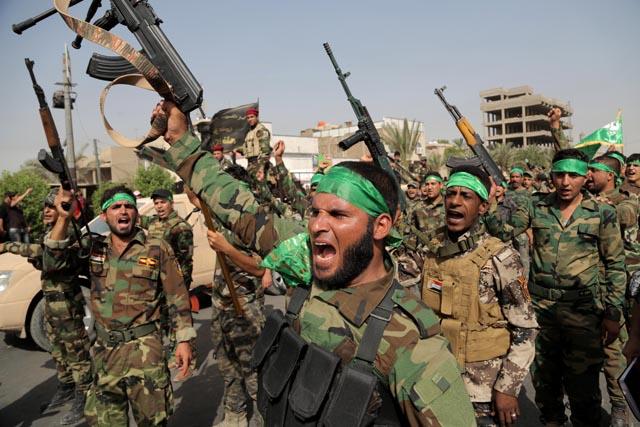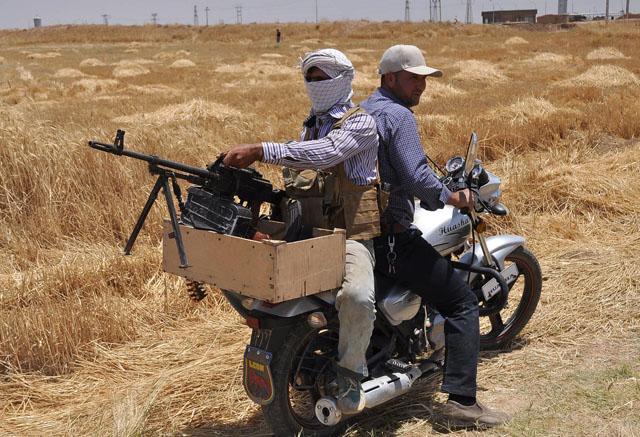You are here
Maliki’s Iraq: Kerry’s new diplomatic mission impossible
By AFP - Jun 21,2014 - Last updated at Jun 21,2014

WASHINGTON — Secretary of State John Kerry this weekend plunges back into the tumultuous Middle East seeking to overcome sectarian divisions in Iraq, amid US frustration with Prime Minister Nouri Al Maliki.
While American leaders have stopped short of calling for Maliki to step down — arguing that it is up to the Iraqis to choose their own leaders — they have left little doubt that they feel the Shiite premier has squandered the opportunity to rebuild his country since US troops withdrew in 2011.
“We gave Iraq the chance to have an inclusive democracy. To work across sectarian lines, to provide a better future for their children,” President Barack Obama told CNN Friday.
“Unfortunately what we’ve seen is a breakdown of trust.”
Obama last week unveiled a plan to send 300 military advisers back to Iraq, but he made it clear that without political changes, the United States would not invest lives and resources in the country US forces invaded in 2003.
In a two-pronged approach, the US commander in chief also dispatched Kerry to the Middle East and Europe to wield the powers of his diplomacy to try to bring political stability to Iraq, where Shiite fighters paraded in Baghdad on Saturday in a dramatic show of force.
That came after Sunni militants seized a Syrian border crossing, the latest victory for insurgents led by the jihadist Islamic State of Iraq and the Levant (ISIL) who have grabbed large areas of northern Iraq since launching a swift offensive on June 9.
“There’s no amount of American firepower that’s going to be able to hold the country together. And I made that very clear to Mr Maliki and all of the other leadership inside of Iraq,” Obama told CNN.
Kerry, who is already juggling heavy portfolios including the war in Syria and nuclear negotiations with Iran, will travel to Jordan, Brussels and Paris from Sunday until June 27.
While the top US diplomat is also expected to travel to Iraq soon — on what would be his second visit since taking over as secretary of state in early 2013 — there is no clear timetable for when the trip will happen.
Washington had initially favoured Maliki when he first became prime minister in 2006 as he was seen to be cracking down on Shiite militias while reaching out to Sunni leaders.
But in recent months, he has grown increasingly sectarian, triggering calls from US leaders to be the man for all Iraqi people — including Sunnis, Kurds and Christians.
Marginalisation
The stunning offensive by ISIL, which has drawn help from other Sunni militias, shows how deep the fractures in Iraqi society run.
Sectarian divisions are also partly blamed for the ineptitude of Iraqi army forces, who evaporated in face of ISIL’s assault.
Despite billions of US dollars spent in training and military hardware, experts say Iraqi troops care little about protecting Sunni towns or propping up Maliki.
“Maliki should go,” said Michael Hanlon, director of research with the Brookings Institution.
“He is seen by most Sunnis, and Kurds, as a Shiite chauvinist who no longer has their interests at heart. They could be right. In any case, these perceptions will be very hard to change, eight years into the Iraqi prime minister’s rule.”
But he warned that as Maliki’s party just won the largest number of seats in April parliamentary elections “it might be too late to get him to step down”.
Maliki’s State of Law alliance won 92 out of 328 seats in the parliament, putting him in the driver’s seat for a third term despite fierce opposition.
Parliament is set to reconvene by the end of June, and will first have to elect a new president who will then appoint a prime minister.
But top US officials are already in Iraq urging Iraqi leaders to speed up the ponderous process, insisting “the country is in a serious crisis and it’s really incumbent upon all of them to come together.”
All parties need urgently to hold “serious and concerted” negotiations to form the next government, a senior US administration official told reporters last week.
Related Articles
Iraqi government forces backed by helicopter gunships began an offensive on Saturday to retake the northern city of Tikrit from Sunni Islamist militants while party leaders pursued talks that could end Prime Minister Nouri Al Maliki’s divisive rule.
President Barack Obama said on Thursday the United States would send up to 300 military advisers to support Iraqi forces confronting an Al Qaeda-inspired insurgency and was prepared to take targeted military action if it was necessary.
Secretary of State John Kerry on Monday promised “intense and sustained” US support for Iraq, but said the divided country would only survive if its leaders took urgent steps to bring it together.

















